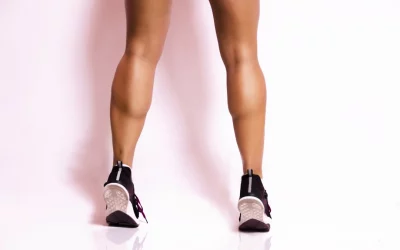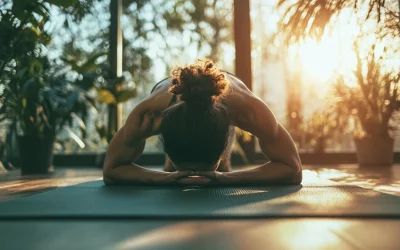Whether it’s because your favourite gym is closed or you think you should incorporate more movement into your life, doing exercise at home is a great way to improve your overall health.
There are two main types of exercise you can do at home- simply incorporating more movement into your day and more traditional, “definable” exercises.
Before you get started, think about why you want to start exercising.
Regardless of if it is at the gym, outside in a park, in the pool, or in your living room, a movement that raises your heart rate is important for your overall health. To be most successful with your exercise, it is best if you can define for yourself WHY you want to increase your physical activity levels.
Are you doing it because you know you “should” but don’t have a more concrete reason than that?
Are you bored of just sitting around immobile for hours?
Has someone else told you to exercise and you’re trying to start just to make them happy?
Maybe you have a goal to lose weight, but either don’t have a specific target or you are doing it because you believe that you’ll be happier when you’re lighter. (Unfortunately, if you’re not focusing on improving your mental health and self-worth alongside losing weight, you won’t actually feel happier about yourself.)
Do you like the feeling of moving your body and do you want to feel great in your skin?
Maybe you’re physically preparing yourself to run a marathon in a few months, so you want to be ready for it.
Maybe you’re looking to encourage your kids to incorporate more movement into their own lives.
Whatever the reason is, just know that there is no bad reason to begin to exercise more. The biggest difference between all of these motivations will be if someone sticks with exercising regularly or if they stop before the end of the week.
Give yourself a few minutes to sit and answer these questions, either in your head or in a journal.
1. Why do I want to start exercising?
2. How am I going to enable myself to be successful? (What time of day will I exercise, how often, etc.)
3. What do I need to start and how can I start as soon as possible?
The answers to these questions will also help you to figure out how you want to be active at home, whether it’s actively deep cleaning your house once a week or devising a complete workout plan.
Incorporating more movement into your day.
Encouraging yourself to be more active around the house is great for people who are new to exercise, physically recovering, or sedentary seniors. Many of these options can help you to improve your physical health without leaving you feeling drained, and they often come with the benefit of creating a better home environment too!
Stand up regularly.
Whether you’ve been scrolling on social media for a few hours, binging a new show, or even working from home, it is important to make sure you get up regularly. This can help to prevent stiffness from your muscles being in one place for too long as well as encourage good circulation throughout your body.
Humans weren’t designed to be sedentary creatures and this simple act of standing up can begin to help you function optimally!
Stretch up towards the roof and bend forward towards your toes. Take a 30-step walk around the room. Pause and savour a few deep breaths. This may not feel like much but standing up every 30-60 minutes will help you to feel better and will improve your ability to focus!
Dedicate time to doing the housework.
While you may not think of doing chores as exercise at first, think about how your body felt after a deep spring cleaning or after shoveling the driveway. These are definitely great examples of home-based exercise- and to reduce the soreness you may feel after, be sure to warm up with a great stretch beforehand!
Every chore session doesn’t need to be as big or time-consuming as a deep clean, but by going that extra step each day will improve your health in more ways than one! (You will reduce areas of dirt and bacteria that can cause illness, a cleaner living space is better for your mental health, and you’ll be moving your body in a variety of ways!)
Depending on the size of your space and how overwhelming a task may be, you can break it down into as many parts as necessary to make it achievable.
Vacuuming.
You can do just one room a day, or if you like to work up a sweat, try setting aside a solid chunk of time in your week to do your whole house. Vacuuming almost engages your entire body- just keep an eye on how you’re feeling, as a poorly designed vacuum can hurt your back or your arms.
Dusting.
Depending on where you’re cleaning, dusting can be a mini-stretching session in its own right! Try identifying a small new area to dust daily, which can also reduce allergens and other bacteria from building up in your home.
Doing the dishes.
There are two main ways to approach this:
If you struggle to do the dishes, set little goals (such as only doing 5 dishes) or build it intentionally into your schedule. I personally find that doing as many dishes as I can while I am boiling water and steeping tea is the best way to do a bit at a time, gradually clearing away my dish pile.
If you have no problem getting to the dishes regularly, try taking it to the next level by safely carrying more dishes and utensils at once (though, this should not be done with your fancy plates) to build functional strength.
The other option if you’re scared about dropping things on the floor or you just want to move more would simply be to put one dish away at a time. While this does add more time to finish putting everything away, it increases your step counts and the number of times that you may bend over or reach up to set a dish down.
Enjoy a mini dance party!
Movement doesn’t always need to be so serious! Grab anyone in the room and dance around to your favourite tunes! Dancing lightens your mood, gets your blood pumping, and releases feel-good endorphins into your system!
If dancing doesn’t appeal to you, you can always add different things to your basic walking pattern, such as lunging to where you need to go, kicking your heels to your bum, or bringing your knees to your chest. This helps to elevate your basic movements to the next step!
Doing more “traditional” and goal-driven exercise at home.
Stretching is excellent home exercise.
Stretching is a great exercise for both the sedentary and the active alike! While doing 10-30 minutes of stretching a day will have significant benefits for your overall health and mobility, you will start to notice improvements even if you do just 3 minutes daily.
Virtual workouts.
The best thing about living in this day and age is the easy access to virtual instruction we have! You no longer need to find a home workout DVD set and hope that it works for you.
Instead, there are stretching apps for your phone (*cough cough* WeStretch), Yoga videos on YouTube, and HIIT workouts over Zoom. You can find the best type of exercise that works for you, and it is often free or low-cost, which means it often works better in your budget than a pricy gym membership that is impossible to cancel.
Walking (or running with a treadmill).
Whether you don’t feel like getting outside because of poor weather or because you have gotten stuck in isolation, you can still get your daily steps in!
If you have a treadmill at home, that is a great way to push yourself as hard as you want to, while watching your favourite show.
If you don’t have a treadmill, allocate a certain amount of time you want to walk for or steps you want to achieve. From there, turn on your tunes, the audiobook you’ve been meaning to listen to, or even noise-canceling headphones if you want to think in silence and walk around your house. You can pace around a specific room or wander around your house on a random path. You can even try a walking meditation if you want to kill two birds with one stone!
Create (or find) a 30-day challenge.
You can do almost anything for thirty days if you put your mind to it! Whether that’s a 30-day stretching challenge or if you just want to do 100 jumping jacks every day for a month, both are wonderful- and can be the first step into turning them into a life-long habit!
One tip is to start small, especially if you are new to exercise or are getting back into it. 10 crunchies a day may not seem like much, but it is a great starting place that will eventually lead to great results!
Conclusion and getting started with exercise at home.
When deciding to exercise at home, it’s important to determine why and how you are going to incorporate more physical activity into your daily life. Whether you decide to do more structured exercise or simply more tasks around the house to increase your movement levels, both have positive benefits on your health. Try to start small and steadily increase over time, finding a specific time of day to help make physical activity a regular habit.
Regular exercise helps to keep your body functioning optimally, stabilizes your mental health, and provides a sense of satisfaction in your day. Find what activities work for you and allow yourself to enjoy them, whether that is listening to a podcast as you vacuum or participating in a virtual yoga class with your friends!
Any links included are for reference, additional information, or entertainment value only, without monetary compensation. Contact us on social media or at [email protected]. Photos courtesy of Unsplash.
This article is not intended to act as or replace medical advice. Please talk to your healthcare practitioner if you have any concerns.
Written by Kayla Willsey






